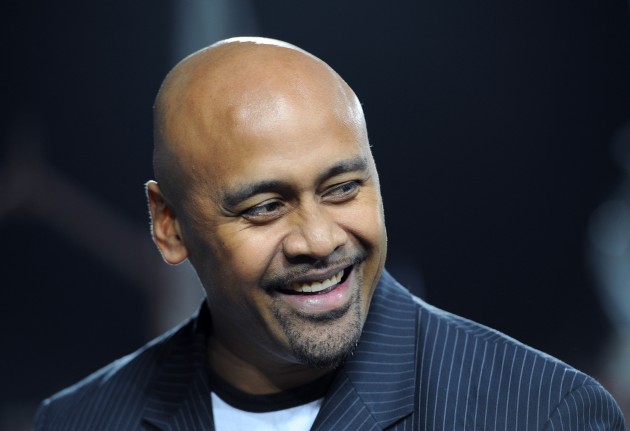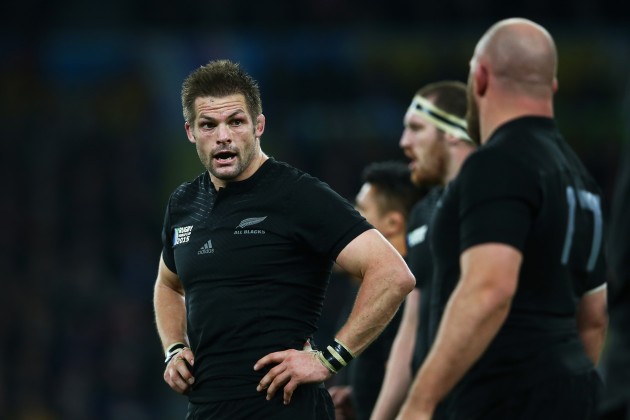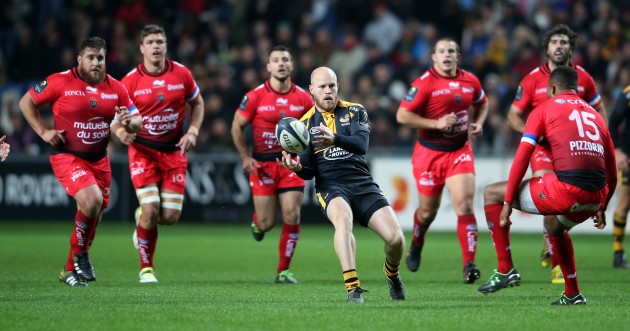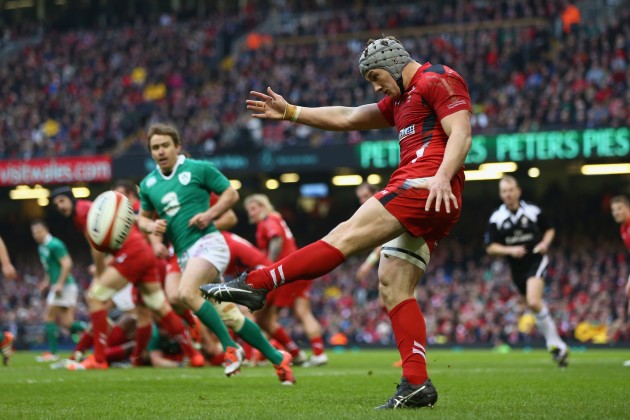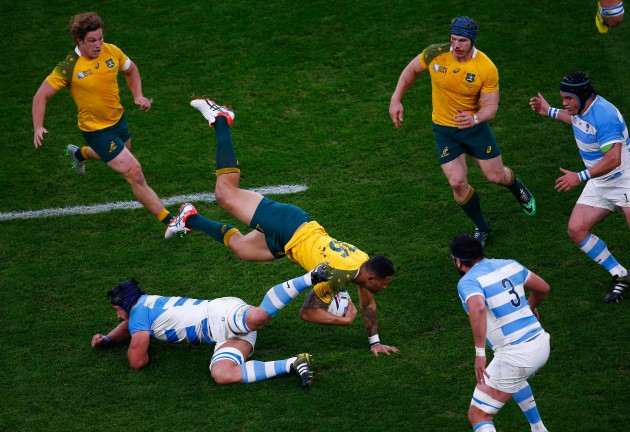The passing of Jonah Lomu, Richie McCaw's incredible career, crowd funding in Welsh rugby and Wasps' renaissance are all discussed
Jonah Lomu – the man who changed rugby
November saw the passing of the most devastatingly effective player in the history of rugby union – Jonah Lomu. Never has there been, or will there be, another individual to compare with Lomu. It was as if he’d been created by a 13-year-old boy on a computer game, where all of the ‘dials’ were switched to max. If like me, born in 1977, you were used to seeing backs measuring up at 5ft 10ins and 12st, then Lomu changed your perception of rugby. My generation simply accepted that forwards had the power and backs had the pace. But then Jonah arrived.
He made forwards look like backs, and backs look like malnourished Victorian street urchins. At 6ft 5inches tall, 18st 5lbs and clocking a 100m time of 10.7 seconds, rugby simply wasn’t prepared for him. It is perhaps strange that Lomu’s most famous victim is Mike Catt. But if you look at Lomu’s highlight reel, Catt is actually one of the fortunate ones. Some defenders, rather embarrassingly, didn’t even have the opportunity to lay a finger on him. His lateral movement, combined with incredible acceleration, Jurassic thighs and calves, and an industrial handoff meant that most players didn’t even get the chance to be flattened. RIP Jonah Lomu.
Richie McCaw – the man who rugby changed rugby to his rules
Many athletes attain greatness in sport. But true greatness is achieved when the game starts to accommodate ‘you’. The remarkable Richie McCaw fits into this category. November saw McCaw retire from what is the finest career in rugby union. A period of achievement whose numbers look so unbelievable that it could almost be a FIFA press release. 148 tests, 131 wins and 110 as captain. Ten Bledisloe Cups, Four Tri- Nations Championships, Three Rugby Championships, Three World Player of the Year titles and two Rugby World Cups.
But McCaw’s achievements in rugby extend beyond numbers. As with Michael Jordan’s ‘Jordan Rules’, McCaw reached a level where the game changed for him. McCaw’s mastery over his position, sport, team, opposition, media and officials meant that he, as with Jordan, defined his own rule book. In short, Why would you enter through the gate, when you’ve been given the keys to the side door? McCaw is the best forward to play the game. A truly wonderful player.
Wasps showing others how it’s done
There are a few teams in rugby, and their supporters, who can on occasion feel a bit sorry for themselves. Overly dwelling on issues of history, identity, or location can seriously affect the wellbeing of a club. The antithesis of which is Wasps. This is a club which has moved 82 miles, to Coventry, and suffered massive financial problems over the past four seasons. Yet they are now lying top of their Champion Cup group, 5th in the Aviva Premiership table and are playing some of the finest rugby in the Northern Hemisphere.
Whereas some clubs make decision making look incredibly difficult, Wasps are currently making it seem very easy – moving Ashley Johnson from flanker to hooker being a minuscule, but perfect example. All of which combined, in November, with Wasps beating Leinster away and Toulon at home. It’s worth remembering that this is a Toulon team which subsequently beat Clermont Auvergne, at the Stade Marcel Michelin, which is rarer than hen’s teeth – it’s actually rarer than a hen’s toothbrush. If you haven’t seen Wasps play this season, do. It’s rugby as it should be played.
Can crowdfunding help the Welsh regions?
Welsh rugby is beginning to recover after years of financial and administrative neglect. However, the cash flow in Wales is still way short of that in the Aviva Premiership and the Top 14. And whilst lucrative stadium sponsorship deals, and increased commercial activity, are beginning to make a difference, there is one avenue that hasn’t been explored – Crowd Funding. Crowd Funding taps into a revenue stream outside of the traditional routes.
Whilst television income, season tickets and commercial activity are vital, crowd funding could appeal to those who are unable to, both physically and geographically, contribute to their team’s finances. The Welsh Regions could quite legitimately set up a ‘Crowd Fund’ to secure a major marquee player – potentially harnessing support and cash from those living outside of the region or overseas etc. With enough social media activity, particularly via official Supporters Groups, the ‘Crowd Funding’ of a marquee player could genuinely help the regions. It works in many other sectors and rugby is no different. Definitely worth a shot.
The ‘Speed-bump’ tackle needs clarification
Not a month goes by without one of rugby’s laws being jammed under the microscope. November saw the ‘speed-bump’ tackle become the latest to dumbfound players, supporters and pundits. By the way, I’ve made-up the name ‘speed-bump’ tackle, but it seems to accurately describe the act of hitting a ball carrier, low, around the ankles, without the use of the arms. What was once an accepted defensive technique, particularly in the narrow channels, is now a penalty and yellow card risk.
The practical issue being that, unlike an upper body tackle; it is very difficult for a player to completely wrap their arms around the ball carrier’s ankles, when leading with the shoulder, due to relatively small circumference of the carrier’s ankles. It takes longer to wrap your arms around a smaller object, than a larger object thus magnifying and isolating the use of the defender’s shoulder. November saw some very unbalanced refereeing with regards to the ‘speed-bump’ tackle. This cannot be the case come the Six Nations – test matches deserve and will require more clarification.






